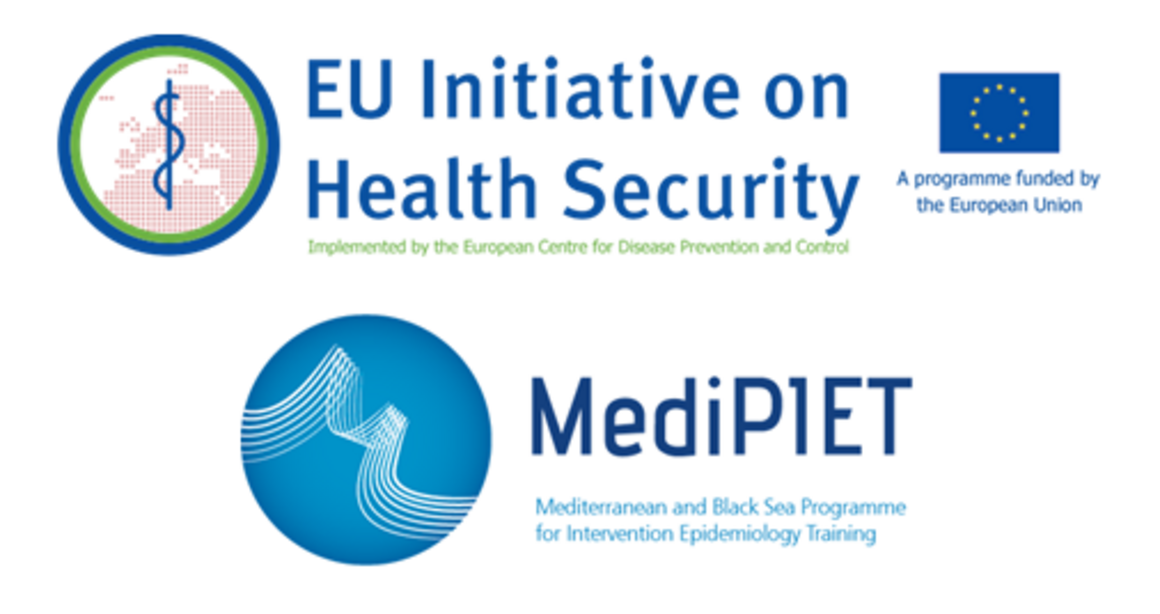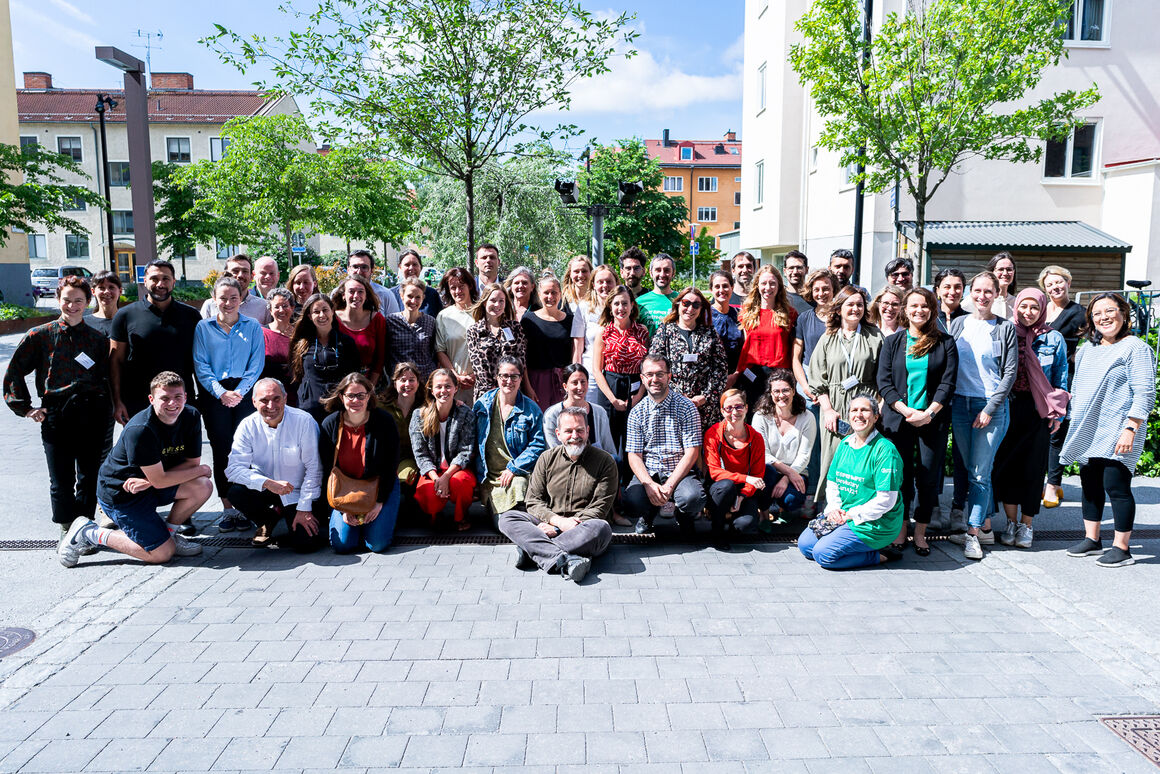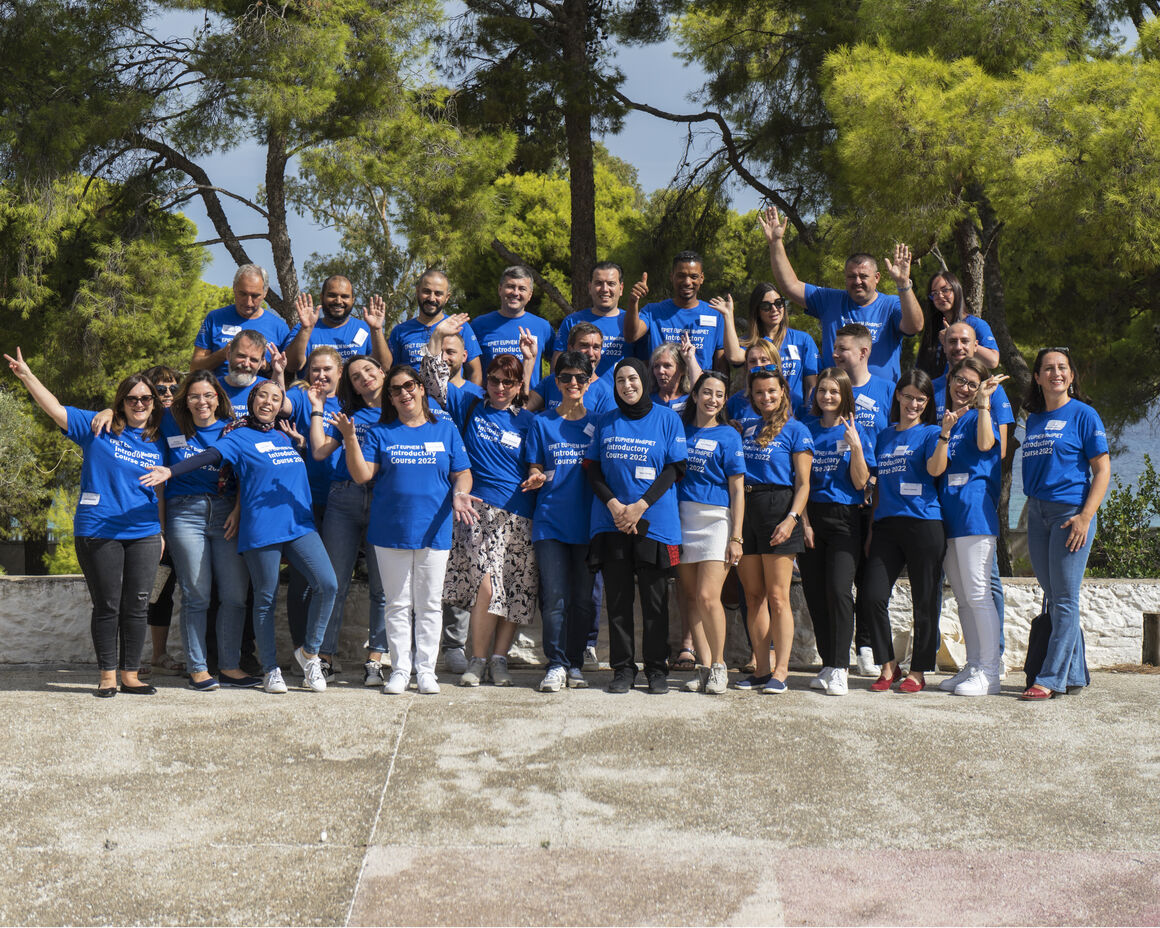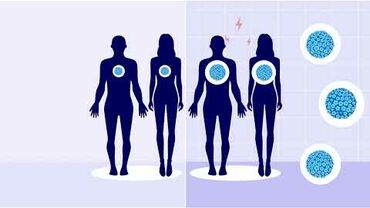MediPIET

The Mediterranean and Black Sea Programme for Intervention Epidemiology Training (MediPIET) aims to enhance health security in the Mediterranean and the Black Sea region by supporting capacity building for prevention and control of natural or man-made threats to health posed by communicable diseases through the implementation of
- a long-term regional Field Epidemiology Training Programme (FETP)
- Training of Trainers activities (ToTs)
- annual scientific events
- other networking and capacity building activities.
Since mid-2021, MediPIET is implemented by ECDC as a part of the EU Initiative on Health Security.
EU Initiative on Health Security
This initiative aims to set up a regional workforce responsible for the prevention and control of challenges posed by communicable diseases and enhancing regional cooperation to tackle cross-border health security threats in EU candidate and potential candidates countries and European Neighbourhood Policy partner countries.
Objectives
- Training a regional cadre of field epidemiologists
- Training national trainers and supervisors and provide support to cascade trainings
- Disseminating expertise, knowledge and skills among non-EU partner countries, EU partners and other key actors in the field; fostering synergies between MediPIET and other FETPs.
- Engagement with partner countries, for bigger impact, and incorporating national and regional public health priorities to the programme curriculum.
- Fostering country commitment, ownership, and regional networking for the sustainability of the programme.
About the MediPIET programme
History
- MediPIET programme was set up in 2013 at the initiative of the European Commission with the aim of reinforcing health security capacities across the European neighbourhood regions. The programme has been implemented across four phases, starting with a two-year establishment phase led by ECDC (2013-2014), followed by two implementation phases carried out by two consortia under the scientific leadership of ECDC: consortium of International and Ibero-American Foundation for Administration and Public Policies (FIIAPP) and Instituto de Salud Carlos III (ISCIII) (2014-2017) and a consortium of ISCIII and Fundación Estatal, Salud, Infancia y Bienestar Social (FCSAI) (2018-2021).
- Since mid-2021, ECDC implements MediPIET as an integral part of the EU Initiative on Health Security.
Programme Design
The MediPIET training programme is set up in a format, which allows the partner countries to decide on the scale of their involvement, depending on the specific partner countries' needs. The programme includes:
|
FETP |
A competency-based in-service 2-year fellowship during which selected fellows conduct projects and field investigations at a MediPIET Training Site in their home country and attend MediPIET modules. |
|
Ad-hoc participation to modules |
For countries without fellows, external experts nominated by the MediPIET NFP can take part in the modules, for their continuous professional development. |
|
Trainings of Trainers (ToTs) |
ToTs offered to supervisors and nominated participants on regional priority topics decided by the partner countries. |
|
Online activities |
E-learnings, webinars and other ad hoc activities. |
MediPIET programme and its curriculum is built on a set of core competencies, which were agreed with the partner countries when the programme was launched in 2013. As one of the ongoing activities, ECDC is conducting a MediPIET training resources and needs assessment with the partner countries to reflect on the current regional priorities and on how well the programme is responding to them. Based on the outcome of the needs assessment, the MediPIET core competencies and the current curriculum may be reviewed.
MediPIET's 4th cohort (2021 – 2023)
The MediPIET cohort 4 started its training on 15 September 2021. It includes 16 fellows from 11 partner countries of the EU Initiative on Health Security.

|
COUNTRY |
NUMBER OF FELLOWS |
|---|---|
|
Albania |
2 |
|
Armenia |
1 |
|
Georgia |
1 |
|
Kosovo* |
2 |
|
Lebanon |
1 |
|
Republic of North Macedonia |
1 |
|
Moldova |
2 |
|
Palestine** |
2 |
|
Serbia |
1 |
|
Tunisia |
1 |
|
Ukraine |
2 |
*This designation shall not be construed as recognition of a State of Palestine and is without prejudice to the individual positions of the Member States on this issue.
**This designation is without prejudice to positions on status, and is in line with UNSCR 1244/1999 and the ICJ Opinion on the Kosovo declaration of independence.
MediPIET's 5th cohort (2022 – 2024)
The MediPIET cohort 5 started their fellowship on 15 September 2022. It includes 16 fellows from 11 partner countries of the EU Initiative on Health Security.

|
COUNTRY |
NUMBER OF FELLOWS |
|---|---|
|
Albania |
2 |
|
Armenia |
1 |
|
Georgia |
1 |
|
Kosovo* |
2 |
|
Lebanon |
2 |
|
Libya |
2 |
|
Moldova |
1 |
|
North Macedonia |
1 |
|
Palestine** |
1 |
|
Serbia |
1 |
|
Tunisia |
2 |
*This designation shall not be construed as recognition of a State of Palestine and is without prejudice to the individual positions of the Member States on this issue.
**This designation is without prejudice to positions on status, and is in line with UNSCR 1244/1999 and the ICJ Opinion on the Kosovo declaration of independence.
After the two-year training, MediPIET graduates are considered experts in applying epidemiological methods and provide evidence to guide public health interventions for communicable disease prevention and control.
The curriculum provides training and practical experience using the ‘learning by doing’ approach in acknowledged training sites across the partner countries.
Documents
Work Programme 2023 of the EU Initiative on Health Security
Work Programme 2023 for the EU Initiative on Health Security, which works to set up a regional workforce responsible for the prevention and control of communicable diseases.
EU Initiative on Health Security - 2022 highlights
Factsheet: Mediterranean and Black Sea Programme for Intervention Epidemiology Training (MediPIET)
Factsheet describing MediPIET, a training programme aimed to enhance health security in the Mediterranean and the Black Sea region.



